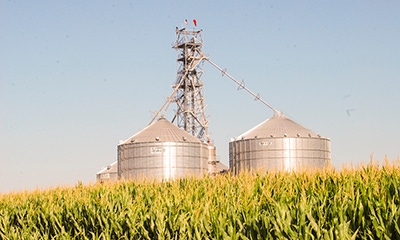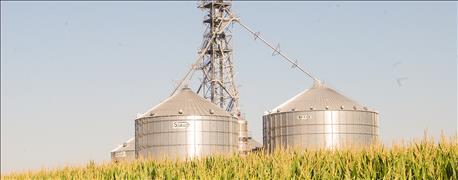July 12, 2016

Farm income has dropped sharply from recent all-time highs. According to USDA estimates, total U.S. farm income is expected to be just under $60 billion this year, less than half compared to 2013. Despite a recent upswing in corn and soybean prices and a return to break-even (just barely) for many farmers, it’s going to be tough to earn a good living raising crops on rented ground in 2016 and 2017 especially if you are paying high cash rent.

CASH RENT vs. CASH FLOW: With lower crop prices and tight margins, more tenants and landlords will have to look for alternative ways to set rents instead of simply using the going rate for cash rent.
About 60% of Iowa’s cropland acres are rented. Of those acres, around 40% are on a cash-rent lease, according to the latest Iowa State University survey. About 7% are a crop-share lease. The remaining 13%, approximately, are some type of flexible cash rent lease. According to ISU Extension’s annual Cash Rental Rate Survey released in May, the average cash rent in Iowa this year is $230 per acre, down from a record $270 per acre in 2013. However, with production costs remaining high, and especially on farms with high cash rental rates, profit margins will be slim to none, based on the current crop price outlook.
Ag lenders are telling more farmers to renegotiate cash rent
Looking ahead to 2017, many ag lenders are urging farmers to keep their landlords in the loop concerning production costs in hopes of negotiating cost-effective rents. By law in Iowa, farm leases will automatically renew for another crop year unless either party provides written termination notice on or before September 1. That deadline is coming soon. “This provision, which is unique to Iowa, can surprise an unwary tenant,” observes Kristine Tidgren, staff attorney and assistant director for the Center for Ag Law and Taxation at Iowa State University.
“The auto-renewal provision applies equally to oral leases or written leases,” she explains. “It applies equally to one-year leases or multiyear leases. Regardless of the length of the term of the original lease, the auto-renewal provision extends the existing lease for one additional year. A lease will continue to yearly auto-renew under this statute, unless notice of termination is issued. In other words, without serving the proper notice, an automatically renewed lease will renew again.”
Either party can give lease termination notice by September 1
These auto-renewal provisions apply equally to landlords and tenants. For example, if a tenant does not wish the current lease to automatically renew for the following crop year under the same price and terms, the tenant must send the proper notice to the landlord by September 1.
For 2017 cropland leasing, ISU Extension farm management specialist Steve Johnson thinks that maybe 10% to 15% of the farms in Iowa are not going to get traditional financing. They are going to struggle with cash rents, unless the cash rents are lowered by the landlord to make renting the farm cash flow for the tenant.
“I think it’s too early to set the 2017 cash rent,” says Johnson. “The 2016 crop has yet to be harvested. But if you want to terminate your current rental agreement so it doesn’t move forward for the coming crop year, you must serve written notice on or before September 1.”
Leasing strategies and tools are available to help figure rents
Johnson doesn’t think it will be unusual for landlords to lower the cash rent for 2017, especially if they want to keep the same good tenant farming their land. Part of the problem is costs for fertilizer, seed, machinery and other inputs haven’t dropped. Most production costs rose during the high crop price years and are slow to decline.
A tool you can use on ISU’s Ag Decision Maker website is File C2-20, “Computing a Cropland Cash Rental Rate.” ISU Extension farm management specialists will explain how to use it at farm leasing meetings beginning soon in July and stretching into August at various locations around the state. Tenants and landlords are encouraged to attend one of these meetings near them. For registration information, contact your ISU Extension county office. Preregistration is encouraged, as an additional $5 fee may be added if registering less than two calendar days before the meeting date.
ISU’s Ag Decision Maker website leasing section also provides other useful resources and information for negotiating leases, information on various types of leases and lease forms, along with newly updated Decision Tools.
More lenders are encouraging use of flexible cash leases
At ISU’s farm leasing meetings, “we will review and explain various ways to figure a fair cropland rental rate,” says Johnson, “and look at farm lease options. One of the alternatives is to use a flexible cash lease. About 12%, maybe 15% of all cropland leases in Iowa are now flex leases.”
Flex leases allow the landlord and tenant to share the risk and the reward. But the terms are more complicated than a regular cash rent arrangement. Johnson has written an article explaining flex leases on his website at extension.iastate.edu/polk/farm-management.
The adjustment of a lease for 2017 will depend on what level the rent is in 2016, points out Dick Isaacson, president of Agri Management Services located at Marion in eastern Iowa. If there was nothing done to adjust it for 2016, it will likely be adjusted down in 2017. “On the other hand, if the rent wasn’t raised in previous years, there may not be much change. It depends on the current lease and on the relationship between landlord and tenant,” he says.
Other factors to consider, and what about crop share leases?
If you are in an area of high quality land, this impacts the cash rent market, notes Isaacson. “Farm operators have to decide between leasing the farm at a possible loss or loose the chance to rent the farm again in the future. Many may choose to pay the higher rent in coming years. Another factor supporting rent levels is the increased production capacity of farm equipment. Producers today can easily farm additional acreage with their existing implements.”
Crop share leases aren’t as complicated as flex leases for keeping track of crop prices and determining payment. And crop share offers a way that a tenant, if short on capital, can keep farming. “We have some clients using modified crop share leases and they’re working well,” says Isaacson. “But it does require the landlord to be responsible for marketing their share of the grain and paying for their share of the crop inputs.”
For farm management information and analysis visit ISU's Ag Decision Maker site extension.iastate.edu/agdm; ISU Extension farm management specialist Steve Johnson's site is at extension.iastate.edu/polk/farm-management.
You May Also Like




